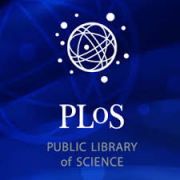Posted on May 01, 2014
Source: PLoS Pathogens

Michael A. Chattergoon, Rachel Latanich, Jeffrey Quinn, Matthew E. Winter, Robert W. Buckheit 3rd, Joel N. Blankson, Drew Pardoll, Andrea L. Cox
Innate immune sensing of viral infection results in type I interferon (IFN) production and inflammasome activation. Type I IFNs, primarily IFN-α and IFN-β, are produced by all cell types upon virus infection and promote an antiviral state in surrounding cells by inducing the expression of IFN-stimulated genes. Type I IFN production is mediated by Toll-like receptor (TLR) 3 in HCV infected hepatocytes. Type I IFNs are also produced by plasmacytoid dendritic cells (pDC) after sensing of HIV and HCV through TLR7 in the absence of productive pDC infection. Inflammasomes are multi-protein cytosolic complexes that integrate several pathogen-triggered signaling cascades ultimately leading to caspase-1 activation and generation pro-inflammatory cytokines including interleukin (IL)-18 and IL-1β. Here, we demonstrate that HIV and HCV activate the inflammasome, but not Type I IFN production, in monocytes and macrophages in an infection-independent process that requires clathrin-mediated endocytosis and recognition of the virus by distinct endosomal TLRs. Knockdown of each endosomal TLR in primary monocytes by RNA interference reveals that inflammasome activation in these cells results from HIV sensing by TLR8 and HCV recognition by TLR7. Despite its critical role in type I IFN production by pDCs stimulated with HIV, TLR7 is not required for inflammasome activation by HIV. Similarly, HCV activation of the inflammasome in monocytes does not require TLR3 or its downstream signaling adaptor TICAM-1, while this pathway leads to type I IFN in infected hepatocytes. Monocytes and macrophages do not produce type I IFN upon TLR8 or TLR7 sensing of HIV or HCV, respectively. These findings reveal a novel infection-independent mechanism for chronic viral induction of key anti-viral programs and demonstrate distinct TLR utilization by different cell types for activation of the type I IFN vs. inflammasome pathways of inflammation.